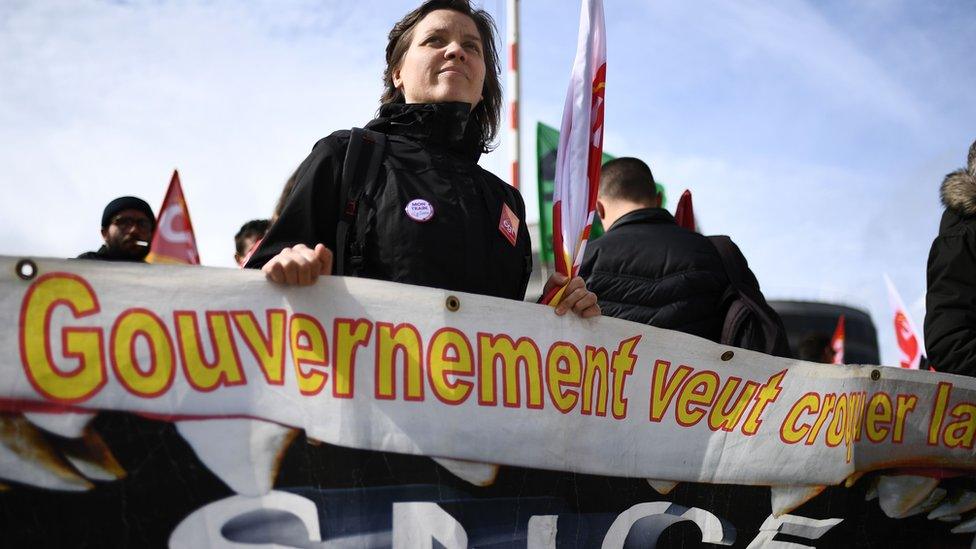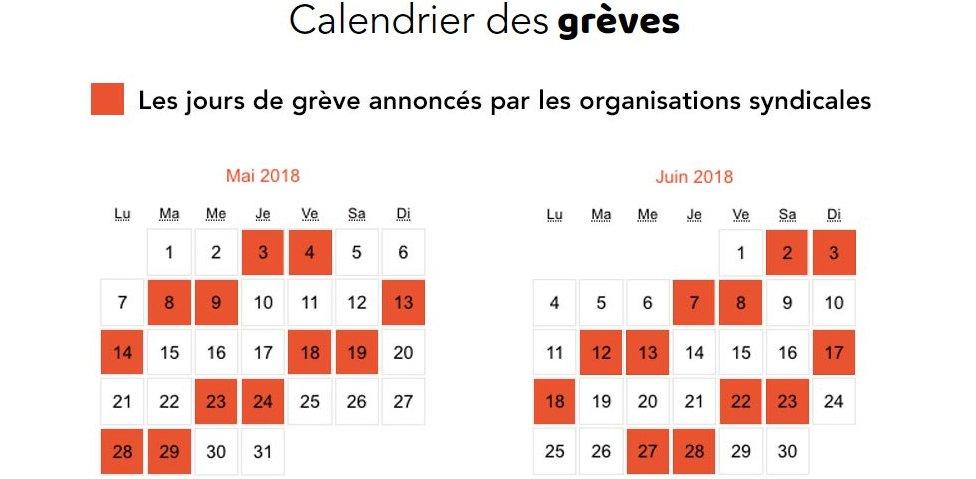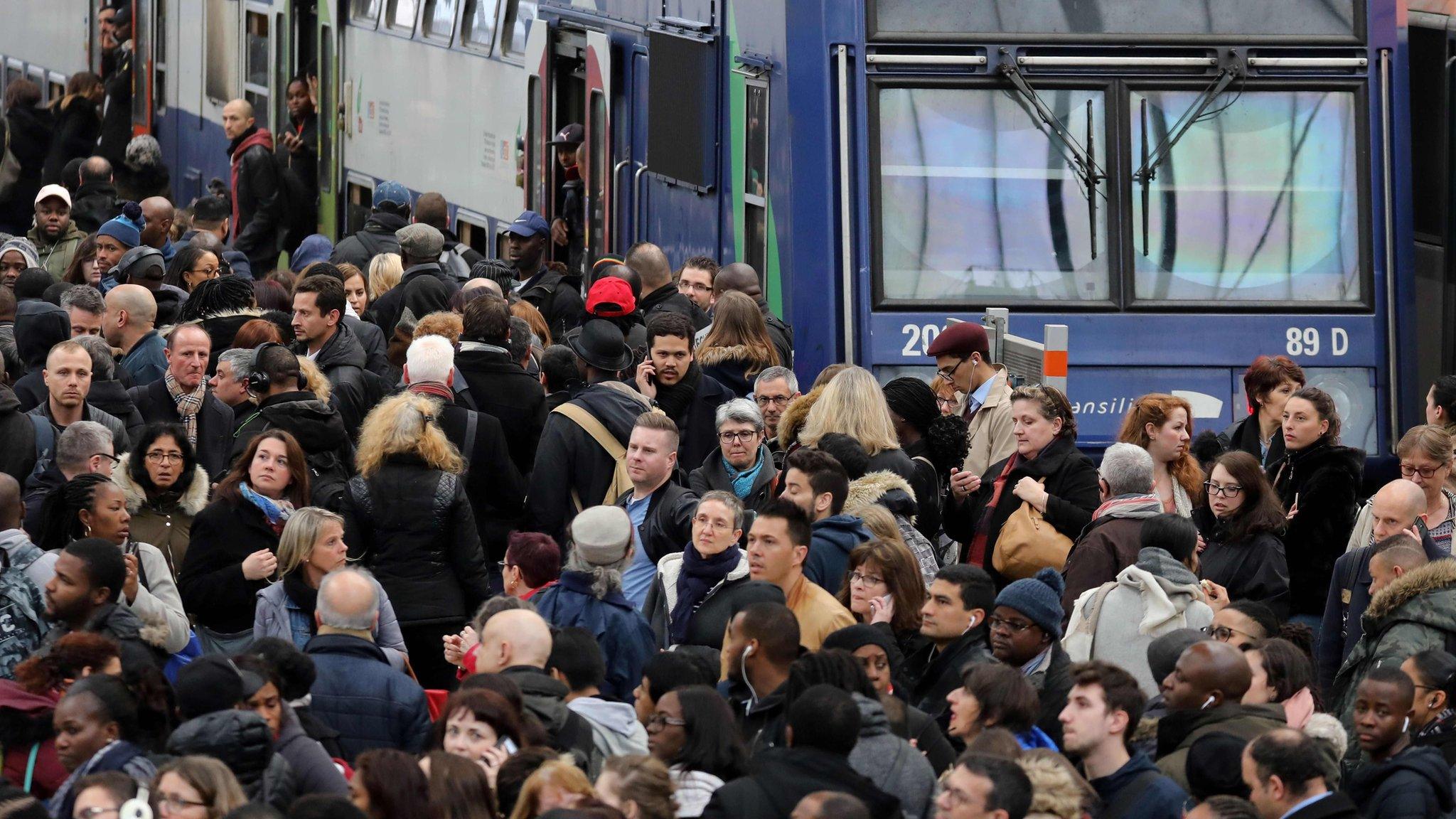Macron French reforms: SNCF workers vote down changes
- Published

The state-owned rail company says participation in the strike has hit a record low
France's striking rail workers have overwhelmingly rejected government measures to reform the country's state-owned SNCF company.
In a ballot derided by the company as a petition, almost 95% of those who voted were against the reforms.
France is in the grip of a three-month wave of rail strikes, as workers resist a bid to phase out generous contracts and open the network to competition.
Two days of stoppages are planned every five days until the end of June.
Announcing the result of the vote on the 11th day of rail disruption since April, Laurent Brun of the CGT union called on the head of the rail company, Guillaume Pepy, to "draw conclusions from the loss of confidence".
But the rail company, which is facing debts of €46bn (£40bn; $55bn), insists the vote has no legal value.
It released figures showing that the level of participation in the strike had fallen to 14.2%, its lowest level so far. However, there was significant disruption on Wednesday to intercity and urban services.

What next for the strikers? By Hugh Schofield, BBC News, Paris
The union-organised vote by rail workers shows that the vast majority of them are against the government's reform plans.
Well, this we knew. Nearly two months of intermittent strikes have already made the point.
And while the result might appear to herald a hardening of the dispute - with more stoppages and demonstrations in the run-up to the summer - in fact it might just presage the opposite.
This is because there are starting to emerge the elements of an endgame. The unions know that the strikes are exhausting their members and draining them financially. And the public has not come on board.

Strikes are taking place on two days out of every five until the end of June
The government meanwhile is giving out signals that there are issues that can still be discussed - for example on the state's takeover of SNCF debt, and rights for rail-workers who move to a different operator once competition starts.
In this light the "consultation" - with its predictable result - can be seen for what it is: a tactic to strengthen the hand of unions in the talks that will soon begin to bring this wasteful rail strike to a close.

What reforms does Macron's government want?
The strikes are seen as Emmanuel Macron's biggest challenge since becoming president a year ago.
Ministers want to phase out generous conditions for rail workers such as automatic annual pay rises, early retirement, 28 days of paid annual leave and protection from dismissal. Close relatives are also entitled to free rail tickets.
They want to open up the state network to competition from 2023 in line with EU requirements. The government also plans to absorb some €35bn of the rail company's debt, reportedly in two stages.
This is a big week for the Macron reforms, as 169 proposed amendments to the draft bill are due to go before France's upper house, the Senate. Prime Minister Edouard Philippe is due to meet union officials on Friday.
The lower house will vote on the plan on 5 June.
Recent opinion polls suggest the French believe reform of the railways is necessary.
According to a survey on Sunday, 58% of those questioned saw the strike as unjustified. A survey conducted by the company itself suggested 75% of 1,000 people questioned backed the government's reforms.
- Published3 April 2018

- Published16 May 2018
